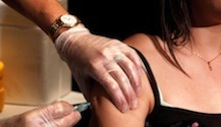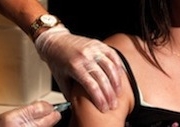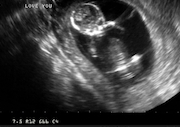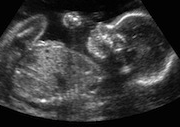HPV vaccine Goes global
 A year or so ago my twelve year old daughter was told that all her class were to be given the vaccination against the sexually transmitted HPV virus, assuming they consented to it. All her peers went ahead, probably with little thought on it. However we did stop to think about it, and discussed it with her in some depth, primarily because it was an issue I had considered myself in my work. As parents we found ourselves challenged by some of the dilemmas it highlighted, not least sex, cancer, death, screening and consent. And for our daughter, the extra factor of peer pressure.
A year or so ago my twelve year old daughter was told that all her class were to be given the vaccination against the sexually transmitted HPV virus, assuming they consented to it. All her peers went ahead, probably with little thought on it. However we did stop to think about it, and discussed it with her in some depth, primarily because it was an issue I had considered myself in my work. As parents we found ourselves challenged by some of the dilemmas it highlighted, not least sex, cancer, death, screening and consent. And for our daughter, the extra factor of peer pressure.
Why am I writing about this now? The vaccination programme in the UK is now well established, generally accepted and our personal dilemmas were over a year ago. A CMF file explored the issue back in 2008 as did a longer article by Peter Saunders in EN in 2006.
It has come back onto our radar because the dramatic increase in cervical cancer caused by HPV infections has spurred the UN to prepare to ask governments to fund the vaccination of every girl in the world against this disease. i.e. a massive vaccination programme against a sexually transmitted disease. It could apparently require seven treatments for each woman, and would be spearheaded by the UNFPA, an organisation well known for its aggressive reproductive rights agenda.
Herein lies the latest dilemma. We know that cervical cancer is a terrible disease that claims thousands of lives worldwide, therefore a vaccine that helps prevent it is surely to be welcomed. To deny it would be selfish, foolish, ungracious and lacking mercy. Indeed, many innocent victims of non-consensual sex and marital unfaithfulness could be helped.
Yet on the other onhealthy antabuse hand, there is still little long-term research on the effects of the vaccine, nor on how long the vaccine lasts. It may ‘only’ prevent 70% of cervical cancer overall and could increase complacency, risk taking and promiscuity amongst adolescents who consider themselves protected. An editorial in the New England Journal of Medicine in 2008 stated that: “more long-term studies were called for before large-scale vaccination programmes could be recommended. Unfortunately no longer-term results from such studies have been published since then.” http://www.nejm.org/doi/full/10.1056/NEJMe0804638 The ability of a twelve or thirteen year old to give fully informed (and understood) consent must also be of concern.
Most concerning of all, however, is that the context in which the HPV vaccine is promoted utterly fails to promote sexual abstinence and faithfulness. There is no addressing by promoters of the vaccine of the need to change sexual behaviour, by advocating a preventative approach. Indeed, the UNFPA, which is looking for a massive funding increase to be the spearhead of this new campaign, is well known for aggressively promoting sexual rights for minors and sidelining parental rights.
The ironic (albeit tragic) outcome could ultimately be an increase in the disease rather than cure, if the primary cause continues to be downplayed and widely ignored.
Promoting abstinence before, and faithfulness within, marriage should be at both the heart and forefront of any new campaign. Resisting any attempt to impose this vaccine on all girls, while supporting its use for those at high risk, is both a logistical and ethical challenge but is surely a better way. However, as my daughter discovered, to say no is far from easy.












Leave a Reply
Want to join the discussion?Feel free to contribute!